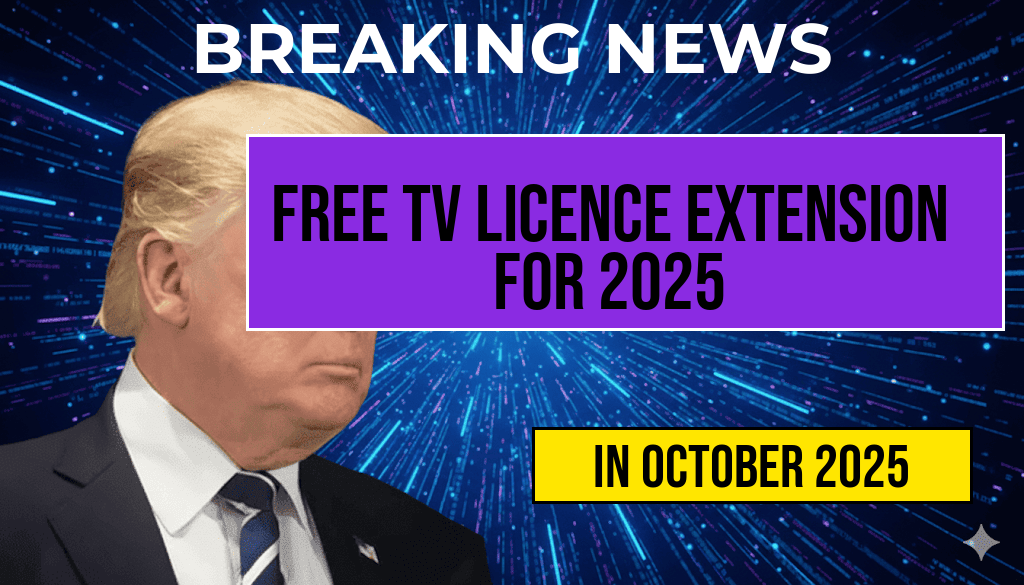The government has announced a significant extension to the free TV licence scheme, ensuring eligible households can access this benefit through the end of 2025. This move aims to alleviate financial pressures on pensioners and low-income families, providing continued access to public broadcasting without additional costs. The extension follows months of discussions on budget allocations and policy adjustments, with officials emphasizing the importance of maintaining universal access to television services amid rising living expenses. Eligible individuals and households are encouraged to review the updated criteria to determine if they qualify for the free licence in the upcoming year.
Details of the Free TV Licence Extension
The Department of Communications announced that the existing policy, which waives the TV licence fee for those aged 75 and over, will now be extended until December 31, 2025. This decision confirms the government’s commitment to supporting vulnerable populations, especially amid inflationary challenges and economic uncertainties. The extension applies to both residential and institutional settings, including care homes and assisted living facilities, ensuring broad coverage. Officials clarified that the move is part of a broader strategy to safeguard access to public broadcasting services during a period of financial adjustment.
Who Qualifies for the Free TV Licence?
Eligibility for the free TV licence primarily depends on age, income, and residence status. The following groups are generally eligible:
- Residents aged 75 and older who meet income requirements.
- Individuals receiving pension credits or similar benefits.
- Households with low income that fall below specified thresholds.
- Residents in care homes or assisted living facilities where the license is registered under the institution’s name.
Applicants must verify their eligibility through the official government portal or local government offices. Documentation typically required includes proof of age, income statements, and residency status. The government recommends early application to avoid delays, especially as the deadline approaches for 2025 coverage.
How to Apply or Renew Your Licence
Eligible households can apply for or renew their free TV licence via the official [TV Licensing website](https://www.tvlicensing.co.uk). The process involves submitting personal details and supporting documents online or through mailed forms. Existing license holders are advised to update their information to ensure continued coverage. The government has also partnered with local councils to facilitate in-person assistance for those unfamiliar with digital procedures.
Impacts on Recipients and Broader Policy Context
The extension aims to prevent disruptions in access to public broadcasting, which serves as a vital source of news, education, and cultural programming. For many pensioners, the TV licence fee can be a substantial financial burden; thus, maintaining this benefit provides both economic relief and social inclusion. Critics have argued that the policy aligns with broader social welfare initiatives, though some suggest the need for a review of eligibility criteria to reflect changing demographics.
Public Reaction and Future Considerations
While many beneficiaries welcomed the announcement, advocacy groups called for further reforms to expand eligibility beyond age-based criteria, citing the rising cost of living. The government has indicated that it will monitor the impact of the extension and consider additional measures if necessary. Budget reports show that the cost of maintaining free licences for eligible groups is approximately $300 million annually, a figure that policymakers aim to balance against other social spending priorities.
Comparison of Eligibility Criteria and Costs
| Eligibility Category | Requirements | Annual Cost to Government |
|---|---|---|
| Age-based | Residents aged 75+; proof of age required | $150 million |
| Income-based | Households below income thresholds; income verification needed | $100 million |
| Institutional | Care homes and similar facilities registered under institution | $50 million |
Looking Ahead: Policy Challenges and Opportunities
The extension underscores ongoing debates around public broadcasting funding and social equity. As technology evolves, policymakers face questions about how to adapt benefits like the TV licence to future media consumption habits. Discussions around transitioning from traditional licences to digital or streaming-based models are gaining momentum, with some experts advocating for more flexible, means-tested approaches. Meanwhile, the government emphasizes that maintaining free access to television remains a priority, especially during economic hardships.
For residents seeking more information, detailed eligibility guidelines and application procedures are available on the official government portal. Staying informed about policy updates ensures eligible households can continue benefiting from this essential service without interruption. As the deadline for 2025 eligibility approaches, authorities advise reviewing criteria and preparing documentation early to facilitate a smooth renewal process.
Frequently Asked Questions
Question
Who is eligible for the free TV licence extension in 2025?
Question
How can I check my eligibility for the free TV licence extension?
Question
Will the free TV licence be automatically renewed for those who currently qualify?
Question
What documents or information do I need to provide to apply for the free TV licence extension?
Question
Are there any changes or limitations to the free TV licence scheme in 2025?

Leave a Reply